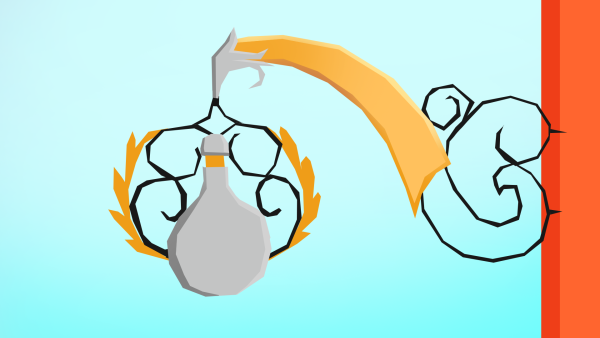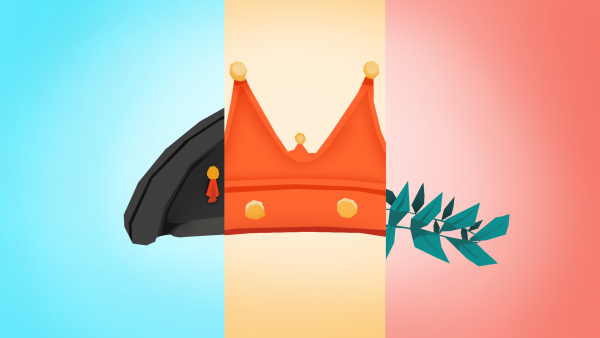Holidays can add depth to a fictional culture, establish traditions, and reinforce the reader’s sense of the culture’s values. Here are a few tips on how to improve the believability of your holidays!
In this article, I’m going to guide you through some key ideas to keep in mind while creating holidays for your world. We’ll start with the various ways holidays come to be, moving over to some traditions (which is one of the main ways you can get creative in with your holidays), how to take into account changes in the holidays over time (along with some real-life examples), and how to practically implement holidays into your world. Finally, I will show you a few examples of the holidays in my world, Eledris.
Origins of holidays
Before we begin creating the holidays for your world themselves, it’s important to realize how holidays get formed. In general, holidays can be divided by origin into five categories: religious, societal, historical, political, and natural. These categories can and often do mix. Let’s look at them one by one.
Religious holidays are based on myths, events, and people in a specific religion. Their purpose is to instill a feeling of unity in the believers, as well as to perpetuate the religion to new people. Religions are a whole other can of worms, and I’ve actually already written an article on them – check it out for more info about worldbuilding religions.
Holidays that originate because of societal issues attempt to draw attention to inequities in the society, or other overlooked problems. Examples might include holidays focused on the rights of marginalized groups (women, people of color, queer people…), or holidays raising awareness of certain disabilities or diseases.
Historical holidays are celebrating, or raising awareness of, historical events and important figures in history. When creating these types of holidays for your world, you can truly showcase which historical events had the largest impact on your cultures – and therefore what your culture values the most. Use these holidays to celebrate the ends of major wars, major points of societal progression, historical figures that had a large impact on the culture, and other considerable events.
Political holidays are created by people in power to gain approval from the people. These holidays inherently celebrate values that a certain demographic in your culture considers important. Such values may include family, honor, or even something completely artificial like a specific cultural dish or a piece of music. When creating holidays like these, think about the people the holiday is trying to target – what do they like, why does the political figure care about this specific group of people, and how will this holiday help them retain, or gain more power.
Lastly, holidays originating based on natural occurrences often coincide with one of the other four categories. These are holidays that usually happen as an extension of traditions connected to the harvest, the end of winter, and similar natural events.
Traditions
Holidays are essentially traditions lifted up to a higher status, either by a government, some organization, or just by the people. It is thus essential for you to figure out what kinds of traditions the cultures celebrating this holiday will honor.
Traditions can range from large-scale parades, city decorations, mass praying, to smaller things, such as preparing a specific dish, reciting or writing poetry, individual study of religious texts, or gifts to family members. It’s important to keep in mind how the holiday originated and what values in your culture it highlights – the traditions are often (not in all cases, more on that later) going to stem from that.
I’ve prepared a list of traditions related to every holiday origin type (20 – 30 examples for each type) – you can download it in the Exclusive Resource library when you sign up for the Eledris newsletter. For a preview, here’s the list for religious holidays:

Changes over time
Beginner worldbuilders often make the mistake of not considering how parts of their cultures change over time. As a culture develops, its values change with it, and either the people in power or the population at large ensure the holidays and traditions change as well. This change is usually not sudden, but rather taking up generations.
The changes in holidays reflect how society itself changes. A holiday that started out as mostly religious (such as Christmas), could shift to be largely cultural and commercial as society becomes increasingly more atheistic. Alternatively, a holiday that initially had nothing to do with religion could be co-opted by a religious group – given the group has enough influence (or the holiday is not very significant), the holiday could become fully associated with the religion. Eventually, most people might wholly forget what the original meaning of the holiday was.
It is notable to mention that political holidays might be opposed by certain groups, and, if those groups come into power, could be either abolished entirely, changed, or mostly disregarded. While most people won’t be against something like “Family Day”, even if it’s a holiday created by a politician to gain the favor of their target demographic, holidays celebrating political figures or key opinions that the political groups differentiate on will be opposed. In the case of political holidays, try to think about what the holiday actually represents to the common person from the entire political spectrum, and how their group would treat it if it was in power based on that.
Real-world examples
As an example, let’s look at two real-world holidays, Christmas, and Beltane, and see how and why they changed over history.
Christmas started out as a religious holiday. While that factor is certainly at play for many people, and church attendance during Christmas is still high, for many people, the holiday shifted to one that is more social – the values of Christmas are often put on family rather than the religious aspects. Many of the traditions remain similar to what they were in the past, but the holiday did pick up plenty of new ones from various cultures during the centuries. This is caused by the globality of Christmas – when worldbuilding, remember that if multiple cultures share a holiday and communicate about it, cultural aspects of all of the groups will seep into the holidays and shape it. Especially during the past century and a half, Christmas has also become massively commercialized.
Beltane, on the other hand, is a much less well-known holiday than Christmas. It started out as a holiday based on natural occurrences, with many religious traditions and rituals connected to it. The main traditions surrounding a bonfire mostly survived throughout the years, however, the celebrations of the holiday itself essentially died out in the 19th and 20th centuries. In the recent past, some of the celebrations have been revived in various forms – sometimes as an effort to honor the original culture, and sometimes as a wholly new celebration only partly inspired by the traditional Beltane. In the latter form, traditions and concepts from various cultures are mashed together with ones of the original Beltane.
How to use holidays in worldbuilding
Holidays can have a lot of purposes in your world. The main one is to shape out the culture and highlight its values and common activities. As I mentioned previously, traditions and the types of holidays can tell you a lot about a culture’s values; you can even use social holidays to highlight the issues in the values themselves. Besides that, the types of political holidays can also speak about the political scene of the country, historical holidays about the past, and holidays based on nature about how your world itself works and how the culture perceives it.
Holidays can also set the background in your worldbuilding – holiday celebrations and traditions can provide great settings for other events in writing or games set in your world to take place in. Worldbuilding holidays provides you with an opportunity to place your scenes in unique circumstances, giving your work originality (as well as a feeling of a more in-depth world).
Finally, the holidays you create will (or, at least, should) inevitably impact all your other worldbuilding. People in your cultures will think about their holidays in their day-to-day life. Around the time of the holidays, cities and villages will change as people celebrate. Businesses will make less or more money depending on the commercial level of the holiday.
There are also more long-term worldbuilding concepts impacted by holidays. Take for example the real-life Christmas cactus, a plant named for a major holiday because it blooms around that time. Naming conventions are obviously different for every culture, but when naming anything, keep in mind that some popular holidays might seep into the naming – and, again, this can enhance the feeling of a deeper, interconnected world.
Holidays on Eledris
To conclude this article, let me show you a few holidays on Eledris, my fantasy world. The first two are from the contemporary Human culture, with the third one being from the now-extinct Elvish society. I’ll quickly dive into the details of why I designed them the way I did as well.
The Day of the Demon
The Day of the Demon is a holiday celebrated across the entire kingdom. It happens yearly alongside the natural occurrence of the eclipse of one of the stars in the Siblings constellation. As the star is eclipsed, the constellation temporarily changes into what the people call the Demon constellation (that’s the natural origin of the holiday). During this night, people believed (and many of them still do, that’s the religious origin) that a massive demon is watching the planet of Eledris (demonic invasions are fairly common in the kingdom). Because of this, the people dress up in costumes as various demons in an attempt to “fool” the demon in the sky into thinking the planet has already been captured by the demonic legion (that’s the social origin).
This holiday combines three origin categories; however, you might have also noticed the similarity to the real-life Halloween. There’s a kind of meta reason for that – I partly created this holiday to serve as an in-lore substitute to Halloween events in video games and communities based around Eledris.
The Mass of the Hundred Vows
The Mass of the Hundred Vows, usually shortened to just The Vows is a yearly celebration that honors the 100 new recruits into the Royal Guard of Carran. This position is one of the highest ones a soldier can achieve, requiring over a decade of training and service. Because of this, the Guards are held in extremely high honor and the ceremony, where the new Guards take their vows to the royal family in front of the Royal Palace, is a very anticipated event throughout the entire capital city of Carran and the surrounding areas. The ceremony itself is usually attended by several thousand people. This holiday is more local than the Day of the Demon, as areas of the kingdom further away from the city don’t celebrate it (although news of it usually reach them, alongside a list of all the new Guards’ names). The holiday is originally political, created by King Elijah the Ruthless as a way to reinforce the high status of the Guard.
I created this holiday to provide some life to the City of Carran, as well as to convey to the readers really how important the Royal Guard is to the culture of the city. The celebration and the vow-taking itself could be an interesting setting for a short story for the future.
Cartarra Elidyr (The Eternal Insight)
Cartarra Elidyr, literally translated to The Eternal Insight, but commonly referred to among Humans as The Archival of Cartarra, was a bi-yearly Elvish festival held in the capital library of the city Cartarra. Twice a year, the grand archives of the library would be unsealed for the librarians to archive new documents, as well as check the quality of the archive’s environment. This was a very ceremonial occasion, with a large part of the population attending silently, while releasing blue-glowing lanterns as an offering to the goddess of the moon.
For me, this holiday was an opportunity to consider the values the ancient Elvish civilization had – while in the current era, their kingdom is destroyed and the vast majority of them are dead, their influence can still be seen all over Eledris. Through this holiday, I can convey exactly how important knowledge and the concept of preserving it was to the Elves.
Conclusion
Worldbuilding a few holidays for your cultures can be a great way to convey the important values the culture holds. Through some types of holidays, you can also develop and showcase your history, as well as the political and social situation of the country.
When creating holidays, keep in mind that as cultures subtly change over time, so will the traditions. Change over time is one of the best ways you can truly display your worldbuilding skill and make your world feel deep and alive.
Remember that there are a lot of various traditions that each type of holiday by origin can display. You can download the full list in the Exclusive Resources library when you sign up for the Eledris newsletter.
Eledris Newsletter
If you have any questions or suggestions for this article, or if you’d just like to chat about holidays, feel free to reach out to me via email!


